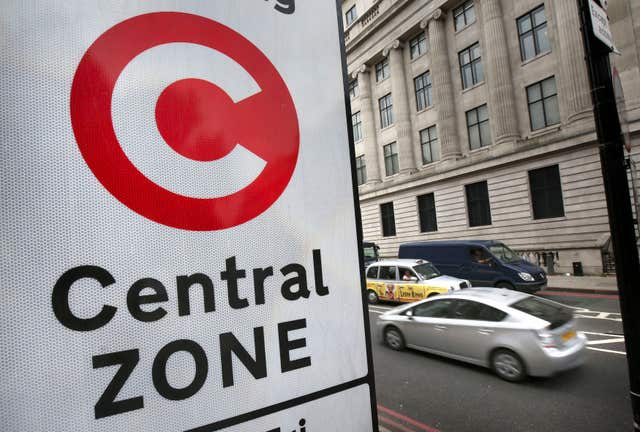Birmingham congestion charge to be introduced to tackle air pollution
City to follow in London’s footsteps by introducing a levy on drivers using its heavily congested roads.

A new congestion charge is set to be introduced in Birmingham city centre by 2020 in a bid to tackle lethal “crisis”-level air pollution.
Birmingham City Council said on Monday it was looking to impose a levy of between £6-£10 on car drivers travelling into its planned Clean Air Zone (CAZ).
The levy could be up to £100 per day for HGVs and similar weight vehicles.
The proposed introduction of the CAZ charge is in response to a looming 2020 deadline for Birmingham to urgently bring about measures to tackle poor air quality.

But the council is now including private cars in its plans, and has not ruled out the inclusion of motorbikes as well.
Waseem Zaffar, cabinet member for transport and environment, said the city “faced one of its biggest challenges” in air pollution, which he described as “a public health crisis in the city”.
He added the measures were “not about making money” and any surplus from the levy would go back into the transport budget.
Announcing a forthcoming public consultation on introducing the charge, and other measures, Mr Zaffar added: “It’s the fourth biggest health concern and we need to work together.
“We have to put measures in place to give people the fundamental human rights of good quality, breathable air.”
The local authority’s own analysis found air pollution was responsible for shortening the lives of about 900 people across the city.
The chargeable area would cover every road within the city centre, incorporating the popular Bullring Shopping Centre and Arena Birmingham music venue, up to – but not including – the A4540 middle ring road.
Vehicles entering the CAZ will be charged if they fall below emissions standards – Euro 4 petrol, which are those registered before about 2006, and Euro 6 for diesel, which are those registered before about 2015, council officials said.
Based on 2016 data, the local authority has estimated that about half of all cars would fall within the charging scheme based on those emission standards, and about 55% of all vehicles, when taken together with HGVs, vans, coaches and minibuses.
The city has been under increasing pressure to move on the issue because failing to comply could land it with a fine of up to £60 million.
It has followed a series of legal defeats for the Government over the adequacy of its wider air quality strategy.
The European Commission also issued a “final warning” to the Government in January over repeated breaches of air quality limits in 16 areas, with Birmingham among the worst offenders.
The Government was warned to implement plans to clean up dangerously high levels of nitrogen dioxide or face legal action in the European Court of Justice.
Birmingham was asked by the Government to provide its CAZ proposals in March, ahead of a final cut-off date of September 15.
The council has only now announced its plans, with detailed proposals to be included in council cabinet papers which will be discussed on June 26.
If agreed, the measures, including the charge, will go out to a public consultation, with results in before the council then presents its full business case to Government in September.
Other measures included will be moves to improve public transport links, aimed at getting people out of their cars and on to buses, bicycles, trams and trains.

But asked if there was a Plan B, Mr Zaffar said: “The reality of the situation is, we’re doing this, we’re going out to consultation, suggesting the CAZ, as we believe it’s the right thing to do for the future of a healthy city.
“On the other hand, there’s that thought of significant fines to this city, running to tens of millions of pounds – but we really believe this is the right way forward. We look forward to people’s responses.”
Plans for CAZs to be introduced in five cities, Birmingham, Leeds, Nottingham, Derby and Southampton, were first put forward by the Department for Environment, Food and Rural Affairs, in 2015.
In London, the congestion charge for cars is £11.50 per day, through there are discounts for residents within the zone, disabled blue badge holders and others.
The capital already operates a wider Low Emission Zone for commercial vehicles with charges of £200 for lorries, buses and coaches weighing more than 3.5 tonnes and £100 for others, like minibuses.
The T-Charge has also been operating as a stop gap until an ultra-low emission zone arrives in central London next April – and taking in all of inner London by 2021.
Alison Cook, policy director at the British Lung Foundation, said it was a “huge step forward” for the city.
“Over the last few years, the damaging health effects of air pollution have been laid bare; we know it’s linked to lung cancer, respiratory disease, stroke and heart disease,” she added.
“Now it’s time to act. Introducing charging clean air zones is the most effective way to tackle dirty air, and so we’re pleased to see this proposal in Birmingham’s clean air plans.”





